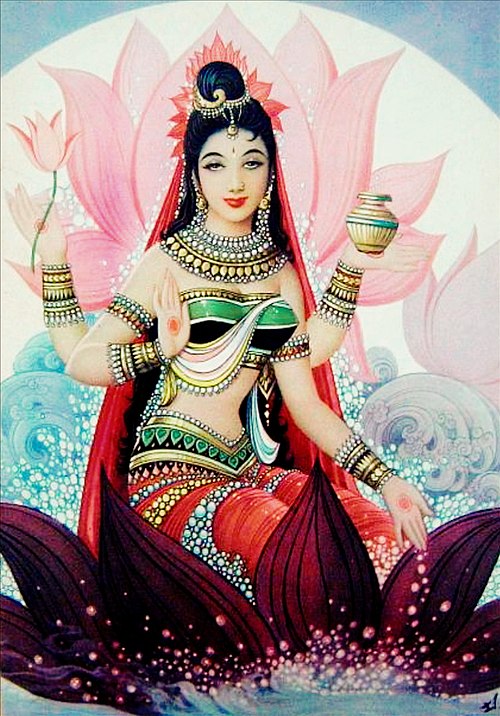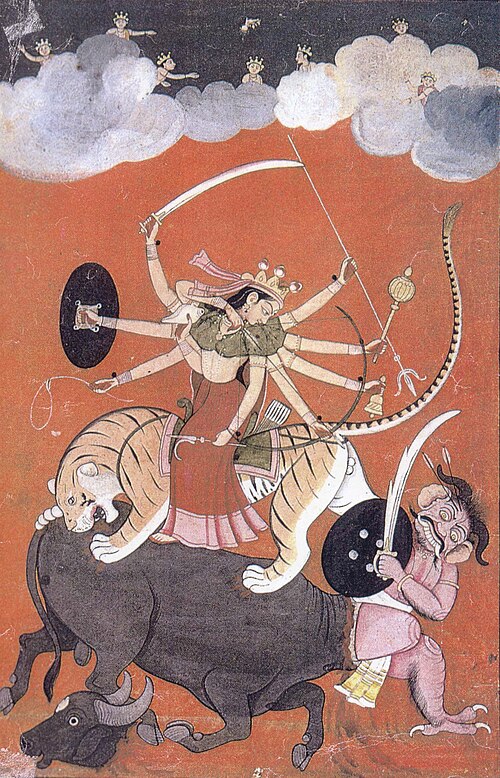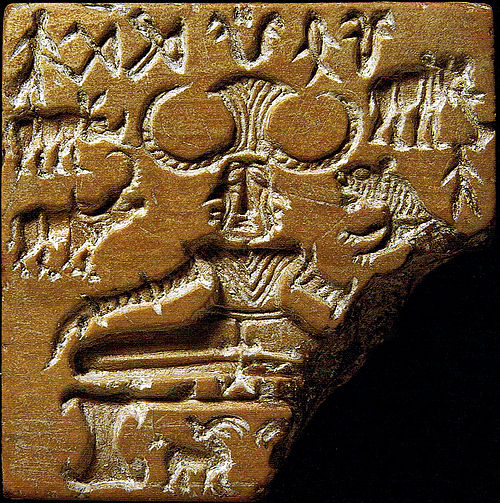Hinduismnoun
the dominant religion of India; characterized by a caste system anud belief in reincarnation.
Hinduismnoun
a complex of beliefs and values and customs including worship of many gods, especially the Trimurti composed of Brahma the Creator; Vishnu the preserver; and Shiva the destroyer.
Hinduismnoun
the predominant religion of India; characterized by a caste system and belief in reincarnation
Hinduismnoun
a body of religious and philosophical beliefs and cultural practices native to India and characterized by a belief in reincarnation and a supreme beingof many forms and natures, by the view that opposing theories are aspects of one eternal truth, and by a desire for liberation from earthly evils
Hinduismnoun
a major religious and cultural tradition of South Asia, which developed from Vedic religion.
Hinduism
Hinduism () is an Indian religion and dharma, or way of life. It is the world's third-largest religion, with over 1.2 billion followers, or 15–16% of the global population, known as Hindus.
Jainismnoun
The heterodox Hindu religion, founded in the 6th century as a revolt against Hinduism; its most striking features are the exaltation of saints or holy mortals, called jins, above the ordinary Hindu gods, and the denial of a supreme being and of the divine origin and infallibility of the Vedas. Also, the sect comprising those adhering to Jainism. Jainism believes in immortality and the transmigration of the soul. It is intermediate between Brahmanism and Buddhism, having some things in common with each.
Jainismnoun
sect founded in the 6th century BC as a revolt against Hinduism
Jainismnoun
religion founded in the 6th century BC as a revolt against Hinduism; emphasizes asceticism and immortality and transmigration of the soul; denies existence of a perfect or supreme being
Jainism
Jainism (), traditionally known as Jain Dharma, is an ancient Indian religion and a major world religious group. The three main pillars of Jainism are ahiṃsā (non-violence), anekāntavāda (non-absolutism), and aparigraha (non-attachment).








